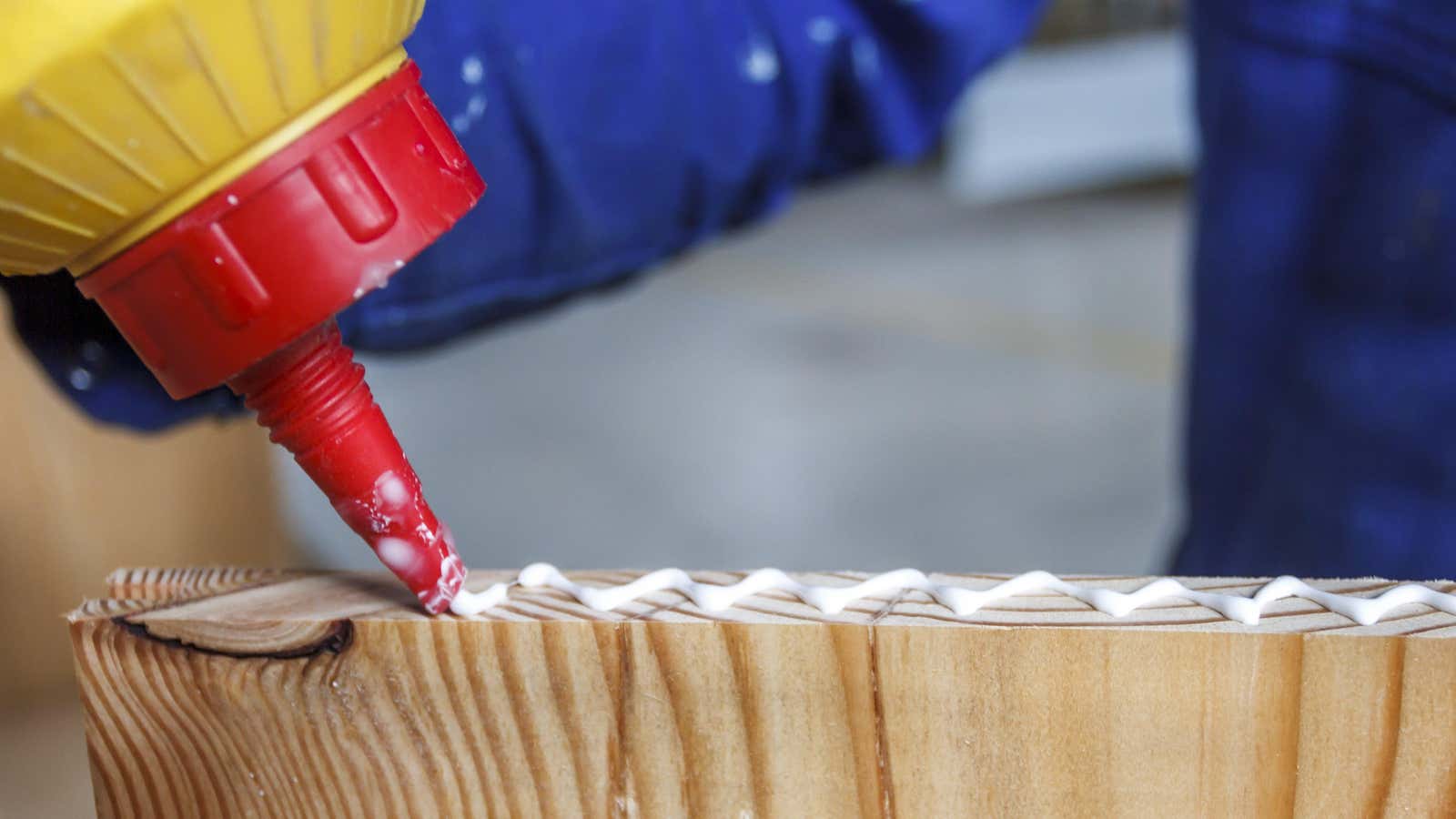Not All Glue Is Created the Same (and How to Choose It)

Look, I appreciate a good roll of duct tape or a bottle of superglue as much as other people, but they are not all-purpose miracle workers. Not every glue is suitable for the job; In fact, experience has shown me that choosing the wrong adhesive for a DIY project can lead to more frustration, more work and unnecessary expense. However, there is a time and place for all of your favorite adhesives – depending on what you are building or renovating.
The two main factors to consider when choosing the right adhesive for your project are the environment it needs to live in (including weather, heat, or sunlight) and the material you are working with (such as wood, plastic, or glass. ). Different types of glue work best on different types of surfaces, so in order for something to really stick, choosing the right glue is key.
How to choose the right wood glue
Not all joinery is created equal – the glue you need will depend on several factors. If you are, say, repairing a crack in one of the planks of a wooden deck chair, you will need glue that is water, heat and sun resistant. On the other hand, if you are looking to fix a damaged wooden picture frame inside your home, a less weather resistant glue is the right choice.
Some wood glue manufacturers use a rating system to assess how weather-resistant their product is, but it’s important to keep the durability in mind. The label will provide information on how weather-resistant the adhesive is to help you choose the right one.
How to repair an inflatable boat
A leak in your new pool float is a bad time, but leaks in pool toys or other inflatable items can be repaired. Your best bet will probably be a vinyl adhesive kit, but you can also try nautical tape, which is designed for temporary repairs to inflatable boats.
Any of these can usually be found in sporting goods stores or outdoors, but if you choose glue, you will need an adhesive that is specifically designed to be applied to vinyl or plastic and is water and weather resistant. Keep in mind that the adhesive must also be flexible when repairing inflatable boats; otherwise, it will crack as the material moves.
How to repair hard plastic, glass and metal
When you are working with hard plastics, glass or metal, epoxy is generally the best choice and comes in a variety of strengths and types. For example, if you are gluing a PVC plastic pipe, you can use a two-part PVC epoxy that is sold at most home renovation stores. If you are gluing glass – perhaps you are mounting a mirror on a base – two-component glass epoxy is often a good choice. Other options include glass sealant or glass hot glue, which are also good choices for larger surface areas.
If you are renovating decorative metal, you can use kneading epoxy, which is a two-component epoxy similar to the consistency of Play-Doh; it can be shaped and comes in a variety of colors.
How to renovate projects with multiple materials
If you are working on a project with multiple materials, it is important to make sure that the adhesive you use is suitable for all surfaces. Some epoxies can damage plastic, some etch or deform glass surfaces, and some can create toxic byproducts when in contact with certain materials. It should also be noted that many all-purpose adhesives have limitations. Some of them may not be suitable for every job or will give mediocre results at best.
Remember: the glue label is your friend
It is important to read the label carefully so that the adhesive does not become a hindrance rather than a help. And remember that it will take time for the glue to harden (or “cure”), and this time can be instantaneous to several days, depending on the product. Check the label to find out how weather, temperature, or humidity can affect cure time.
Finally, no one likes the glue-related trip to the emergency room. Read the safety information on your product label to learn about the steps you should take to protect yourself from things like smelly fumes or skin exposure, and how to properly dispose of and clean up clutter.